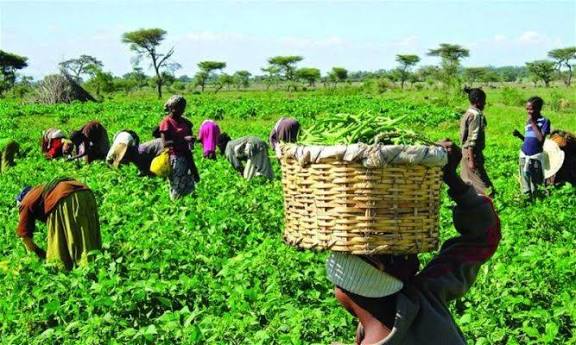The Jigawa State Government has once again reaffirmed its commitment to youth empowerment and agricultural development by training 400 youths in date palm farming. This initiative is designed to create jobs, improve food security, and diversify the state’s agricultural economy. Date palm farming has emerged as a high-value sector in Nigeria’s agricultural landscape, and Jigawa is positioning itself as a leading hub for this lucrative crop. The training not only equips participants with modern techniques in cultivation and processing but also provides them with the tools to become entrepreneurs in the agricultural sector.
Background of the Initiative
Jigawa State has historically been an agrarian society with strong roots in farming. However, with the challenges of unemployment, underutilized farmland, and low diversification in crops, the government has invested in alternative ventures that can generate sustainable wealth. Date palm farming is one of such ventures, and the decision to train 400 youths in this sector highlights the vision of the administration to combine empowerment with economic diversification. The program aligns with Nigeria’s broader agricultural transformation agenda, supported by federal agencies and international partners. For context, Nigeria’s agricultural policy framework is available via Federal Ministry of Agriculture and Rural Development.
Why Date Palm Farming?
Date palm farming is an industry that offers numerous economic benefits. Dates are highly nutritious, used as fresh fruits, processed into syrups, and even integrated into confectionery. Globally, the date palm market is worth billions of dollars, with Middle Eastern and North African countries leading in production. By training youths in this sector, Jigawa State seeks to tap into both domestic consumption and export markets. According to the Food and Agriculture Organization (FAO), Nigeria has vast potential to expand into date palm cultivation, given its favorable climate and fertile soil.
Structure of the Training Program
The 400 youths selected underwent an intensive program that included theoretical sessions, field demonstrations, and practical exposure to date palm farming. Key components of the training included:
- Seedling selection and nursery management
- Soil preparation and irrigation techniques
- Pest and disease control in date palm farming
- Harvesting methods to ensure fruit quality
- Post-harvest processing and packaging
- Entrepreneurship and access to agricultural financing
The program also partnered with agricultural experts and extension officers who provided technical guidance, ensuring that participants left with practical knowledge applicable to their communities.
Empowering Youths Through Agriculture
The choice of 400 young participants is symbolic of the government’s effort to target Nigeria’s vibrant youth population, which faces rising unemployment. By empowering youths through agriculture, Jigawa State is tackling both poverty reduction and wealth creation. Participants will not only farm but also become trainers themselves, creating a ripple effect across local governments. The vision is to establish a sustainable agricultural economy where youths can thrive as independent farmers and agribusiness owners.
Economic Benefits of the Initiative
The economic benefits of training youths in date palm farming are far-reaching. Among the expected outcomes include:
- Job creation: Each trained youth is expected to employ more hands as their farms expand.
- Food security: Date palms add to Nigeria’s food basket and reduce import dependency.
- Export opportunities: With proper quality control, dates can become a major export crop, earning foreign exchange.
- Industrial development: By-products from date palms, such as syrup, vinegar, and fiber, can stimulate agro-industries.
Partnerships and Support
The Jigawa State Government collaborated with agricultural research institutes, extension services, and private investors to make this training possible. Organizations like the Nigeria Incentive-Based Risk Sharing System for Agricultural Lending (NIRSAL) play a critical role in providing credit guarantees and access to loans for young farmers. This ensures that the trained youths do not just acquire knowledge but also have access to finance to establish their farms.
Challenges and Opportunities
While the opportunities in date palm farming are vast, challenges such as lack of access to markets, inadequate infrastructure, and the need for irrigation systems remain. The government has assured participants that policies will be put in place to address these issues. With improved road networks, storage facilities, and access to micro-credit schemes, date palm farming in Jigawa can become a model for other Nigerian states. Farmers are also encouraged to link with local and international markets through platforms like Agrilinks to maximize profits.
Impact on Rural Communities
The program is expected to have a positive impact on rural communities, especially in areas where poverty levels are high. The trained youths will introduce modern farming methods to their localities, creating a multiplier effect. Women and vulnerable groups are also encouraged to participate in the expansion of date palm farming, thereby ensuring inclusivity and community development. This aligns with Nigeria’s commitment to the Sustainable Development Goals (SDGs), particularly those focusing on poverty reduction, decent work, and responsible consumption.
Future Prospects of Date Palm Farming in Jigawa
Looking ahead, the Jigawa State Government plans to scale the program, targeting more youths and increasing hectares of land dedicated to date palm farming. With consistent government support, private sector collaboration, and international partnerships, Jigawa could become a major exporter of dates within the next decade. The government also plans to integrate digital tools, mobile apps, and e-commerce platforms to help farmers reach broader markets.
Conclusion
The decision by the Jigawa State Government to train 400 youths in date palm farming is a strategic investment in agriculture and youth empowerment. This program not only prepares young people to be successful farmers but also entrepreneurs who can create jobs, reduce poverty, and contribute to national economic growth. With the right infrastructure, financing, and market access, date palm farming has the potential to transform Jigawa into a hub of agricultural excellence.
For more information on grants, agricultural programs, and youth empowerment opportunities in Nigeria, visit Palliative.ng.

